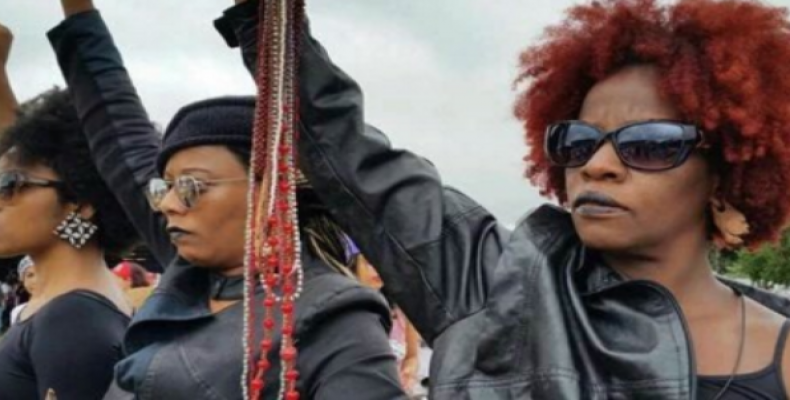Brasilia, November 19 (teleSUR-RHC)-- According to organizers, at least 10,000 Black women marched Wednesday in Brasilia to protest against violence, racism, and to demand gender equality.
They came from around the country for the occasion, and gathered outside the National Congress of Brazil, protesting against the recent wave of conservative bills that attempt to reduce their rights.
On October 21st, a lower chamber commission approved a bill seeking to limit access to the morning-after pill and information on abortion for rape victims. The bill removed access to the morning-after pill for rape victims, as well as the obligation to provide them with information about their rights and available health services. A week later, lawmakers approved a legislative report recommending that hospitals be forced to warn the police every time a woman is examined over abortion-related issues.
Minister of Women, Racial Equality and Human Rights Nilma Lino said the demonstration was important for giving visibility to afro-descendant women, and defending their rights.
“This is the first march of Black women that aims to draw society and political leaders' attention to the effort, by conservative sectors, to approve bills that harm their rights,” she added.
Vanda Mendez, one of the movement's leaders, highlighted that in recent years, a process of change allowed a certain expansion of their rights in terms of access to the political sphere, as well as access to goods and services.
Nevertheless, such achievements are being questioned, with “Black women living in conditions of vulnerability, of fragility, without guarantees,” she added.
Black women, who suffer from both racial and gender discrimination, are more likely to be victims of violence in the country, found a recent government report issued one week ago. Over the last decade, murders of Black Women in Brazil grew by 54 percent, while for light-skinned women the figure dropped by 9.8 percent.
The findings take place as the Brazilian government took an important step earlier this year to combat femicide by signing into law a measure that increases the penalty for such crimes.


